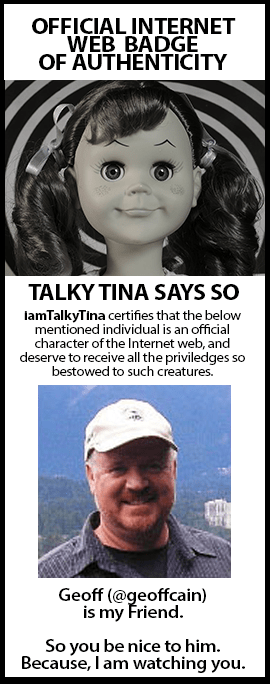
Ben Wildavsky wrote an article in the Chronicle of Higher Ed called “Is Globally Democratized Learning Always a Good Thing?” I went there to comment, but I set off their curmudgeon filter. It now says Threat Level Orange and won’t let me post.
I feel that society and technology has changed how we communicate and how we learn to such a degree that “the traditional hierarchical relationship between professor and student” is more of a barrier than anything else.
First off, it represents an economic barrier that needed to come down a long time ago. There are places in the world where the globalization of education will mean the difference between life and death for millions of people. Many countries in Africa can’t wait for the hand-wringers in the Ivy Leagues to decide when teaching epidemiology online is okay or not. They need the information now and they need to learn the best way to learn that information online.
Second, the hierarchical relationship is not the only method of teaching; it is merely the traditional one. Socrates was suspicious of writing because it took away our reliance on memory.
Third, as much as I appreciate the efforts of MIT and Yale, they did not invent open education content. Much of their content online consists of syllabi and reading lists. I do not find comfort in the repetition of “MIT, Yale, Carnegie Mellon” – these universities are institutions of exclusion. And ironically, I believe one of the reasons Anya Kamenetz is so popular is because she is a product of Yale and the access that background represents. There are far more revolutionary writers on education and open content that will not get that kind of attention.
Statements like “it seems to me that students don’t always learn effectively on their own or with minimal assistance” represent a complete misunderstanding of what online learning is and an unfamiliarity with the basic research into the field of online learning. Students in online classes can have highly interactive, thoughtful, and engaging experiences. There are examples of poor online teaching just as there are examples of poor face-to-face teaching. But to think that the alternative to face-to-face is “interactive software” is a misunderstanding of online pedagogy.
I disagree with Dunderstadt as quoted in this article as well. There is a significant amount of knowledge creation and research that is going on via the internet – for instance in open classrooms like George Siemen’s and Stephen Downes courses on Connectivism and Connective Knowledge. There are many examples like this.
How will professors of traditional universities be able to provide “the experience and wisdom to intelligently navigate the new world of knowledge” if they are unwilling to experience it themselves?





